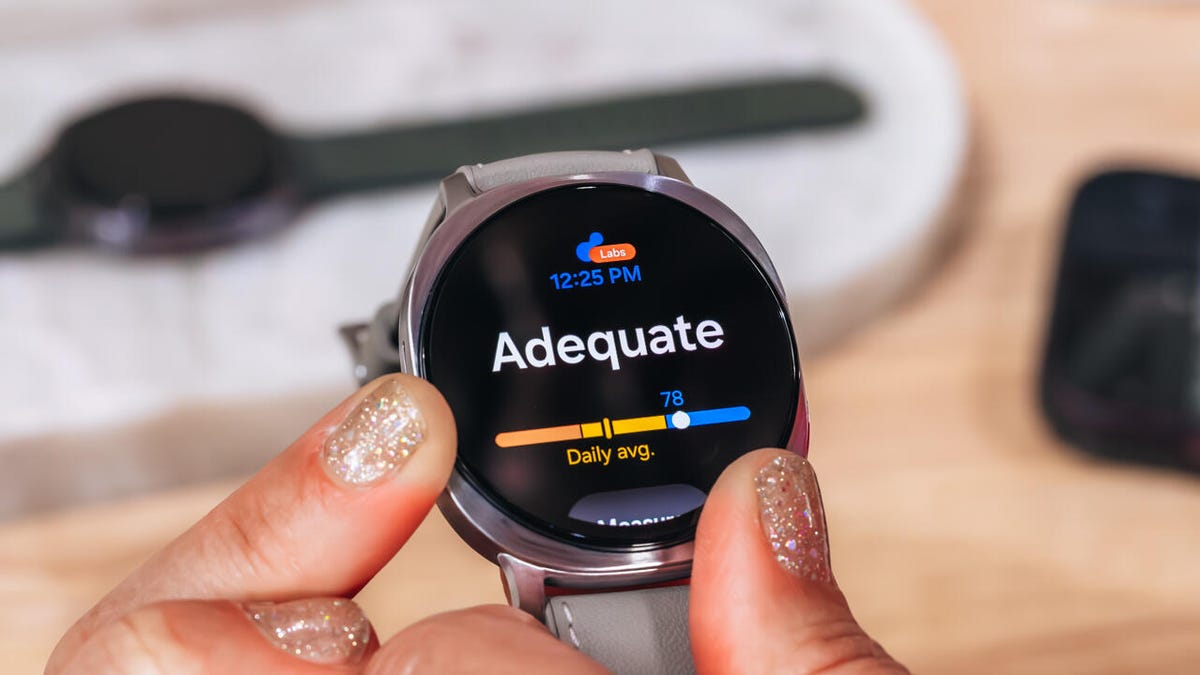Samsung's Galaxy Watches are taking preventive care and healthy aging to the next level with personalized coaching and a new skin analysis feature you can use right from your wrist, no lab work needed. The update is part of a broader push by Samsung to help people take action on their health in the moment, to fend off chronic illness in the long run. I spoke with Dr. Hon Pak, Samsung's senior vice president and head of digital health, to get a closer look at what's coming to the Galaxy Watch and how the company is pushing the boundaries of what's possible with wearables.
"There's illness, there's cancer, and so many other conditions that are actually preventable," Pak told CNET. "We know those behaviors are important, but in our busy lives, it's often hard to keep them up. At Samsung, our mission is to meet people where they are and help support those healthy behaviors in a meaningful way."
The new tools are expected to debut alongside the next Galaxy Watch in July and include a noninvasive skin test that measures carotenoid levels (or a type of antioxidant), a metric that measures heart health, better sleep coaching and an AI-powered running coach with live feedback to help you train smarter.
"What we really think we can do is bring this data about sleep, nutrition, activity and stress, and really contextualize it for the user," Pak said.
At a time when there are a dizzying number of smartwatches and wearables available for consumers to choose from, Samsung aims to stand out by evolving its Galaxy Watch from a passive tracking device into a proactive health monitor. The goal is to help people take control of their health and keep them on track long-term. With more than 68 million people worldwide on Samsung Health, the company hopes to bridge the gap between that brief snapshot of data collected at the doctor's office and the continuous health data collected by wearables that can help paint a more complete picture of your health.
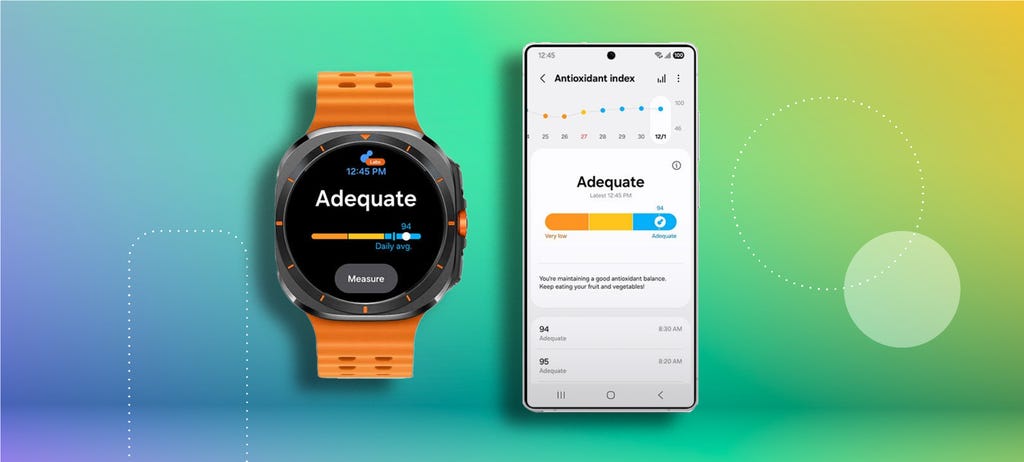
The Galaxy Watch's Antioxidant Index measures antioxidant levels in your skin by pressing your thumb on the back of the sensor for a few seconds. Samsung
Antioxidant detection, no lab work needed
Carotenoids are one type of naturally occurring antioxidants commonly found in vegetables like carrots, sweet potatoes and leafy greens that can help the body get rid of potentially harmful free radicals that build up in the body, according to the National Institutes of Health. The NIH defines free radicals as unstable oxygen molecules --typically caused by stress, poor diet, smoking and environmental pollution-- that can cause oxidative stress in the body over time, contributing to serious health problems like cancer, heart disease and premature aging.
With a new feature called the Antioxidant Index, the next Galaxy Watch will be able to measure carotenoid levels in the skin instantly, and without the need for lab work. Instead, you place your thumb on the back of the watch sensor for a few seconds and see the results on the screen. According to Samsung, the antioxidant measurement needs to be taken on your thumb rather than your wrist because the fingertips offer clearer access to skin carotenoids.
"This is a noninvasive way to see how your diet and lifestyle may be affecting your antioxidant levels," Pak said. "We use LED light sensors measuring four different wavelengths to detect beta-carotene in the skin. And we've validated the readings [from the Galaxy Watch] against levels in the blood,"
The Antioxidant Index feature on the watch will show a score between 0 and 100, grouped into three categories: "adequate," "low," or "very low." The scores are based on the World Health Organization's recommendation of at least 400 grams per day. Pulling up the Antioxidant Index on the phone will also give some general guidance on habits to improve antioxidant levels like increasing fruit and vegetable consumption and reducing alcohol and stress.
"Eventually, we want to tie this to personalized recommendations through nutrition coaching and recipe suggestions." Pak said.
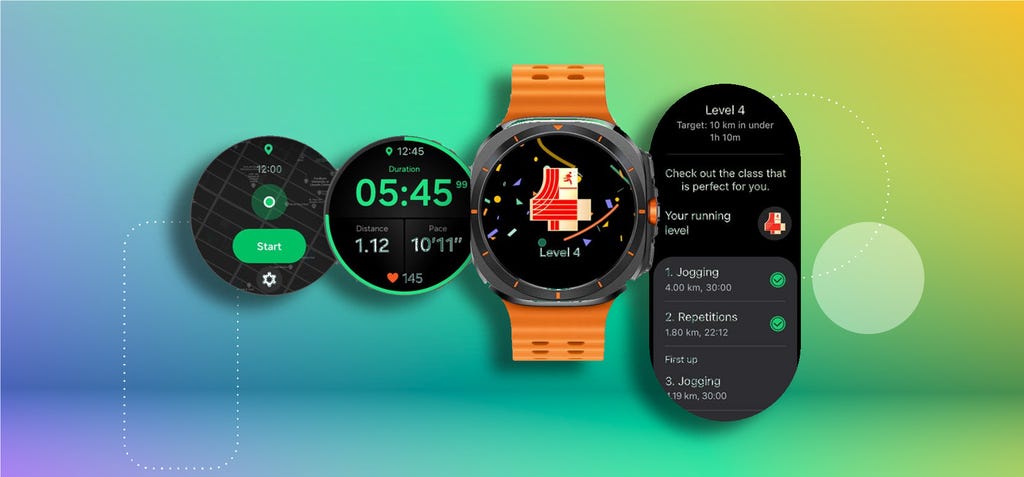
Smarter running tools on the Galaxy Watch create a custom training plan to reach your goals that adapts as you go. Samsung
Running
Samsung is also debuting a 12-minute run test to help Galaxy Watch owners establish a baseline fitness level, ranging from beginner (level one) to marathon-ready (level 10). Once the assessment is complete, the watch will generate a personalized training plan to help people reach specific distance goals, like running a 10K or half marathon.
You'll also get real-time encouragement from an AI coach on the watch to help push you through a run, similar to Apple's new Workout Buddy feature on the Apple Watch. Samsung's AI coach will give guidance verbally like "push a little harder" or "ease up," as well as adapt plans for future workouts based on your performance. As users progress, they'll unlock new training challenges, making the program dynamic and goal-driven.
It'll also help you put the training into context by showing you how it's affecting other health indicators already on the watch, like VO2 max, a key indicator of overall fitness. Eventually, these health indicators could be used as training targets instead of just distance goals to map out a training plan.
"As we target more athletes clearly, that's going to be something people are going to want to do," Pak said. "That's a teaser for what's to come."
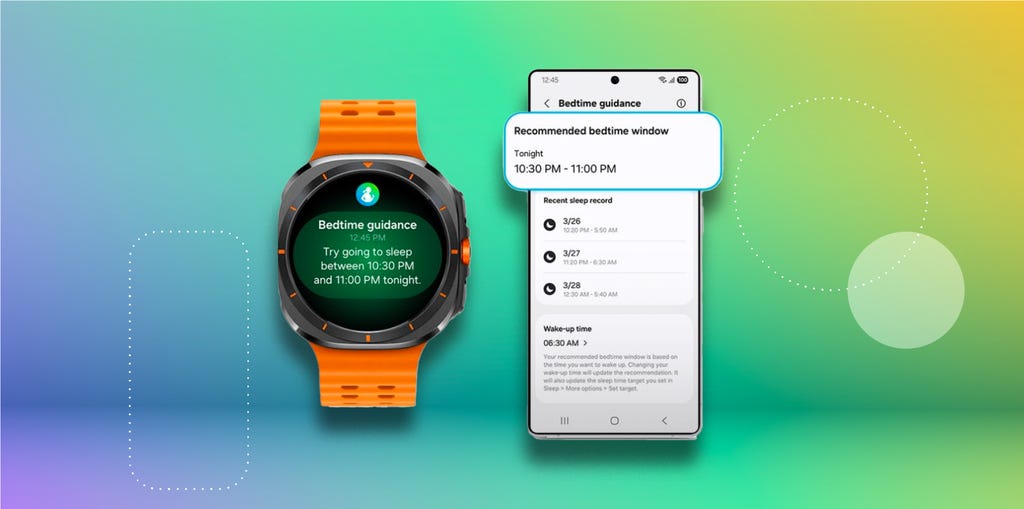
The Bedtime Guidance feature on the watch gives you an optimal sleep and wake window that takes into account your individual circadian rhythm and sleep debt. Samsung
Sleep
Sleep is another core puzzle piece in Samsung's holistic approach to preventive care, and a major indicator of overall health, Pak said. Poor sleep has been linked to serious long-term risks like dementia, cardiovascular disease and obesity.
"A lot of body repair happens during sleep, both physical and mental," he said.
A new feature called Bedtime Guidance builds on the Galaxy Watch's existing sleep tracking tools, like sleep stage analysis and sleep apnea detection, by offering personalized recommendations for optimal sleep and wake times. It starts with a three-day analysis of your sleep habits to determine your unique circadian rhythm and sleep pressure (also known as sleep debt). From there, the watch provides tailored advice to help improve metrics like total sleep time and energy score based on your own sleep data.
Rather than simply sending a generic reminder to get eight hours of sleep, Bedtime Guidance recommends a personalized sleep and wake window. The goal is to help you recover from nights of poor or irregular sleep and improve alertness during the day. So, for example, if you were jet-lagged, this feature could (in theory) help reduce your sleep debt and get your sleep schedule back on track faster.
The Galaxy Watch also takes a more nuanced approach to coaching by factoring in real-world inputs collected by the watch, your Galaxy phone, and other Samsung devices when available. For example, it may suggest improving your sleep environment by lowering the thermostat or making the room darker.
"We have SmartThings connected with Samsung, so it can control your environment, things like humidity, temperature, lighting, or even automatically closing the blinds. We also have medical features, like sleep detection. After just a couple of nights, we may be able to detect signs of sleep apnea and suggest that you seek medical care," Pak said.
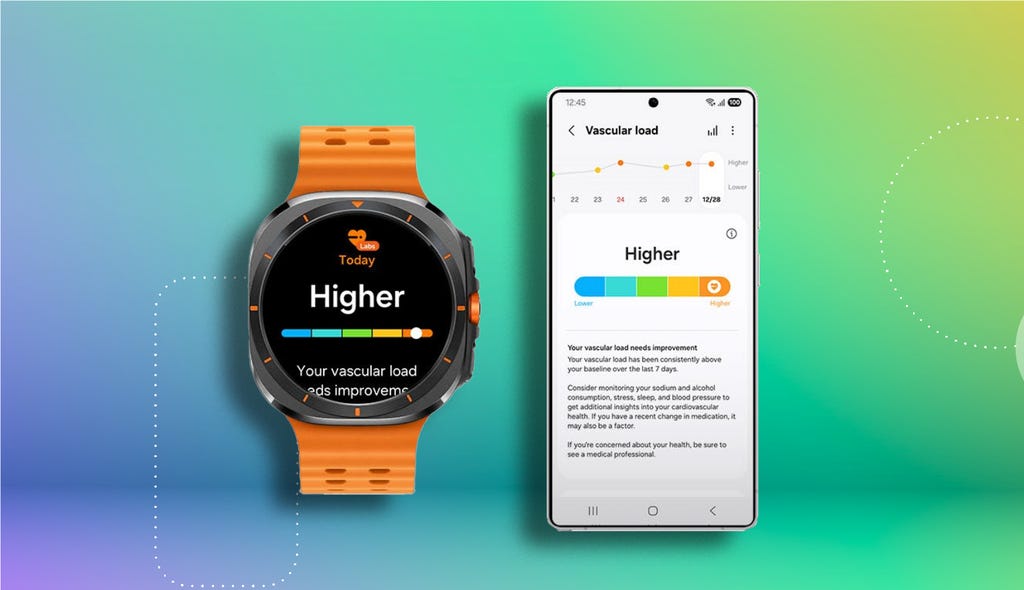
Vascular Load on the Galaxy Watch measures the strain on your heart (or vascular system) during sleep. Samsung
Vascular Load measures strain on the heart
Another new metric is Vascular Load, which reflects the cumulative stress on your heart and vascular system while sleeping; stress that ideally should decrease overnight. Pak said the Galaxy Watch uses pulse-wave analysis and optical sensors to track trends in arterial stiffness and overall cardiovascular strain. These readings are translated into a low-to-high scale to help you understand how behaviors (like sodium or alcohol intake) may be contributing to long-term heart disease risk.
"Things like poor sleep, a bad diet or chronic stress can elevate your vascular load," Pak said. "This is one way we're trying to make those connections visible in a meaningful, measurable way."
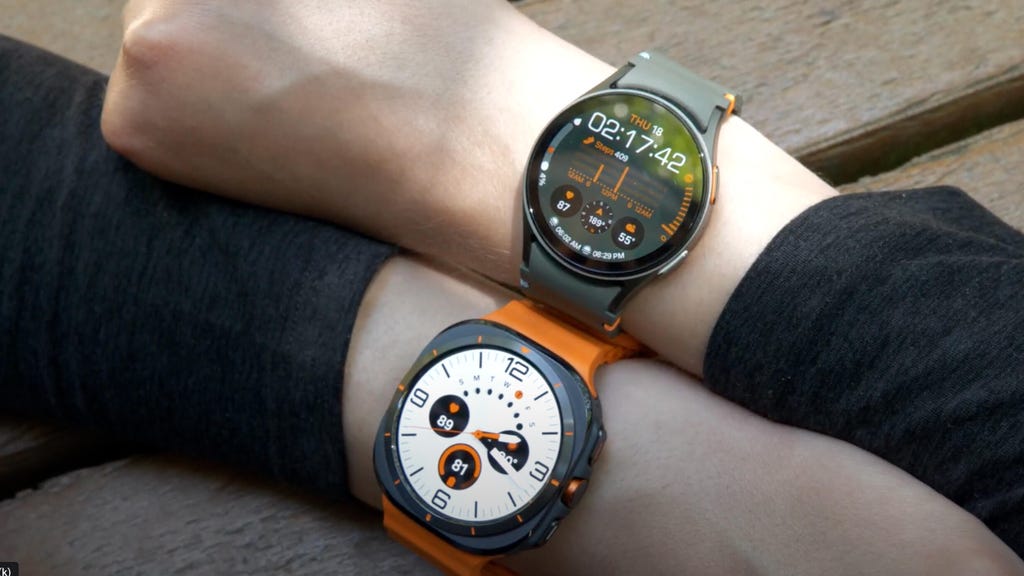
The features will be available on newer watches like the Galaxy Watch Ultra and Galaxy Watch 7, but vary depending on the types of sensors available. John Kim/CNET
Who gets these features, and how much will they cost?
The new features are part of the One UI 8 Watch, which will be available on the newest Galaxy Watch series starting this month through a beta program (currently limited to customers in the US and South Korea with a Galaxy Watch 5 or newer). Vascular Load and Antioxidant Index are being introduced as Labs features, which means they're considered experimental and available for early preview before their official release.
All of these features are expected to make their official debut with the next Galaxy Watch, which we expect to arrive in July. The availability of each specific feature will depend mostly on whether your Galaxy Watch has the advanced LED sensors necessary to power them. Vascular Load and Antioxidant Index, for example, will be available only on the Galaxy Watch Ultra and later, while the Running Coach feature will require the Galaxy Watch 7 or later.
Pricing is also still up in the air. During our interview, the company said it's exploring a premium subscription model similar to Fitbit Premium or Garmin's new Connect Plus, which requires a monthly subscription to unlock advanced coaching features. Ideally, the features would be included free with the new watch, while older models could access them behind a paywall. We'll update this article as soon as Samsung shares more details on model eligibility and pricing.
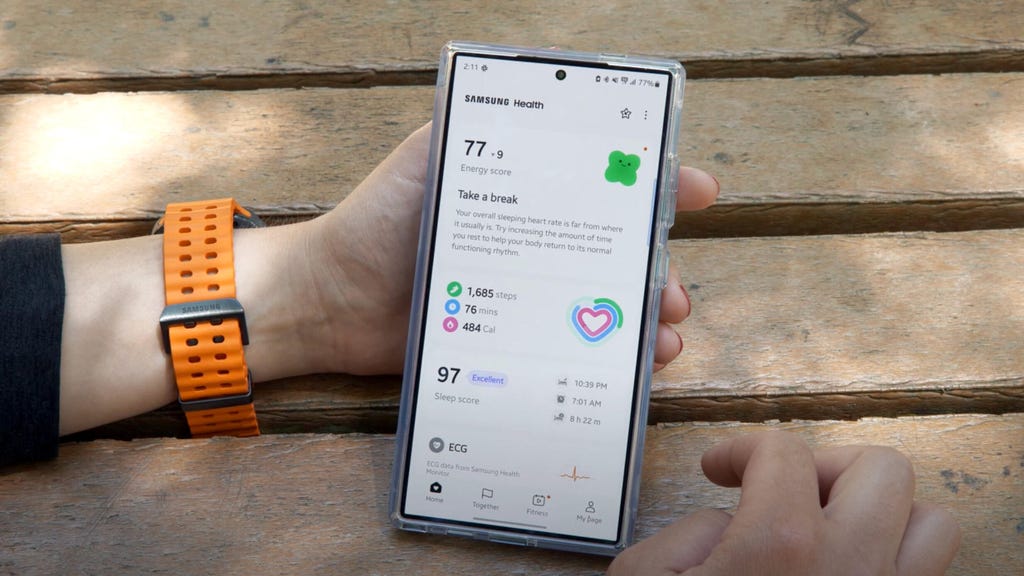
The Samsung Health app showing data from the Galaxy Watch Ultra. John Kim/CNET
Samsung's future health plans
Optically based glucose measurement may not be too far off, Pak suggested. As Samsung continues to explore noninvasive medical testing, it's clear the company sees wearables playing a growing role in day-to-day health tracking and as preventive care. Samsung's goal is to make clinical-level insights accessible at home and turn wearable data into actionable guidance before a problem becomes serious.
"We believe wellness isn't just one thing," Pak said. "It's activity, nutrition, mental health, and sleep combined."
Whether it all works as intended (and whether people actually stick with it) will depend on Samsung's execution. But one thing is clear: Samsung is making a serious play to turn your wrist into a true health hub.
Correction, Jul. 11: During Samsung's Galaxy Watch 8 announcement, the company updated details about how its Galaxy Watch's Antioxidant Index feature works and the process for using it.



